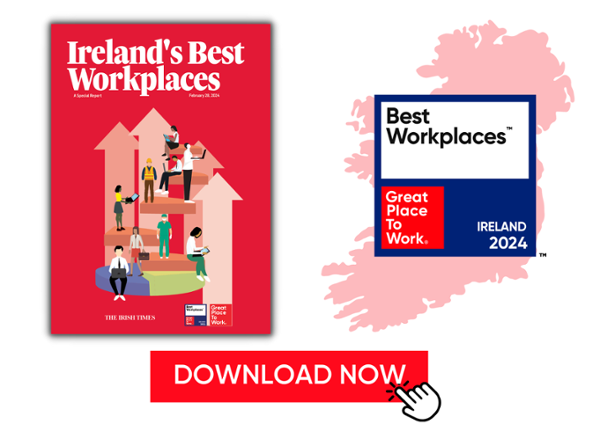There are countless ways you can improve diversity and inclusion in the workplace, and below are 20 ideas to help inspiration flow. These are designed to be impactful steps you can take right away, regardless of your headcount, budget, and bandwidth.
Let’s get started:
20 Ideas for Cultivating Diversity and Inclusion
1. Convert all job descriptions to gender-neutral language. Audit all your job descriptions to check for uses of “he/his/him” as the default and convert them to gender-neutral pronouns like “they.” Text.io is a fantastic platform for this.
2. Conduct blind screenings to minimise unconscious biases in the resume review process. Studies have shown that people with stereotypically “ethnic” names need to send out more resumes before they get a call back, and that resumes with female names are rated lower than ones with male names, even if they’re equally qualified.
3. Ban “culture fit” as a reason for rejecting a candidate. When interviewers want to reject candidates for “culture fit” or a “gut feeling,” unconscious bias is often at play. Challenge your interviewers to articulate a more specific explanation as a way to uncover hidden biases and have open conversations about them.
4. Create a channel for D&I in your company’s communication tool. Consider creating a Slack channel dedicated to D&I where employees can share articles and news. This can help normalise talking actively about D&I in the workplace.
5. Celebrate holidays and events for underrepresented groups like Black History Month and Pride.

6. Give visible recognition when employees do go above and beyond by picking up extra duties. Contributing to your workplace isn’t just about hitting sales goals or shipping products — it’s also about doing your part to make your company a great place to work, and it deserves props too!
7. Allow flexible work hours. Show your employees you trust them to get their work done with the freedom to create their own work hours. People have all sorts of personal situations that may affect their ability to work a strict 9 to 5. Lack of flexibility makes the lives of some employees unnecessarily difficult, and they may respond by leaving for a company that can provide it.
8. Schedule team bonding activities during the day. When everything fun happens at 5:00, working parents and caregivers — and folks with different lifestyles in general — may not be able to participate.
9. Bring in technology. There’s lots of emerging “D&I tech” that can provide potential help and solutions to challenges. As a place to start, check out: Interviewing.io (objective technical hiring).
10. Invite a guest speaker from the D&I community to speak at your company, especially if you already have regular talks on technical topics or on leadership. Just set aside a couple of slots for D&I!
11. Share discussion points and an agenda prior to meetings so more voices are heard. Some people like to talk through new information immediately, whereas others (such as introverts) prefer to have time to process it before sharing their perspective. By presenting a problem on the spot, you’re less likely to receive the latter group’s contributions.

12. Try the Round Robin technique in meetings, where you ask every person in the room for a contribution to the discussion at hand. People can either share an idea or pass, ensuring that one or two voices aren’t dominating the conversation and that everyone has an equal opportunity to speak up.
13. Point out interruptions. Studies show that women are far more likely than men to be interrupted in meetings — and the more it happens, the more they may feel that their contribution isn’t valued. By heightening awareness of interruptions, you can help people break the habit.
14. Partner with non-profits and community organisations. Bonus points for supporting orgs that are aligned with your mission! Are you a food company? Reach out to soup kitchens or food banks and offer to support their fundraisers. Ed-tech? A variety of non-profits offer tutoring and volunteer opportunities where your employees can share their skills.
Building A Diverse & Inclusive Workplace: Insights from Woodie's

15. Include D&I in performance conversations. Even if you’re not tying D&I directly to individual goals, you can still touch upon hiring managers’ efforts, progress, and the expectations you have for them in performance conversations to keep it top of mind.
16. Provide Learning & Development workshops for employees to develop and refine adjacent skills like communication and empathy. An inclusive workforce is an emotionally intelligent one.
17. Offer flexible PTO. Empower your employees to decide when it’s the right time for them to take a break. By giving them the option to take time when they need it, you’re inherently telling them that you trust their judgment.
18. Update your sick leave policy to cover mental health days. Allowing employees to use their sick days when they need to take a mental breather shows your company prioritises their mental health. This small change to your policy can also help you prevent burnout and loss of productivity.
19. Encourage your leaders to get involved in the dialogue. Executive buy-in is mission-critical for D&I efforts to succeed. Ask your execs to get involved through actions like sharing articles, tweeting about steps your company is taking, and including D&I on the agenda in company-wide meetings so everyone feels encouraged.
20. Above all else, listen to your employees. Invest in the things they care about.
It's important to remember to start small. Don’t let the immense scope of things that need to be done keep you from doing anything at all. Because you can talk about diversity and inclusion forever — but taking action is the only way to change anything!
Check out our webinar on How to get Certified as a Great Place to Work 👇

More resources:
About Great Place to Work®
Great Place to Work® is the global authority on workplace culture. We help organisations quantify their culture and produce better business results by creating a high-trust work experience for all employees. We recognise Great Place to Work-Certified™ companies and the Best Workplaces™ in more than 60 countries.
To join the thousands of companies that have committed to building high-trust company cultures that help them attract, retain and take care of their people, contact us about getting Certified™ today.

